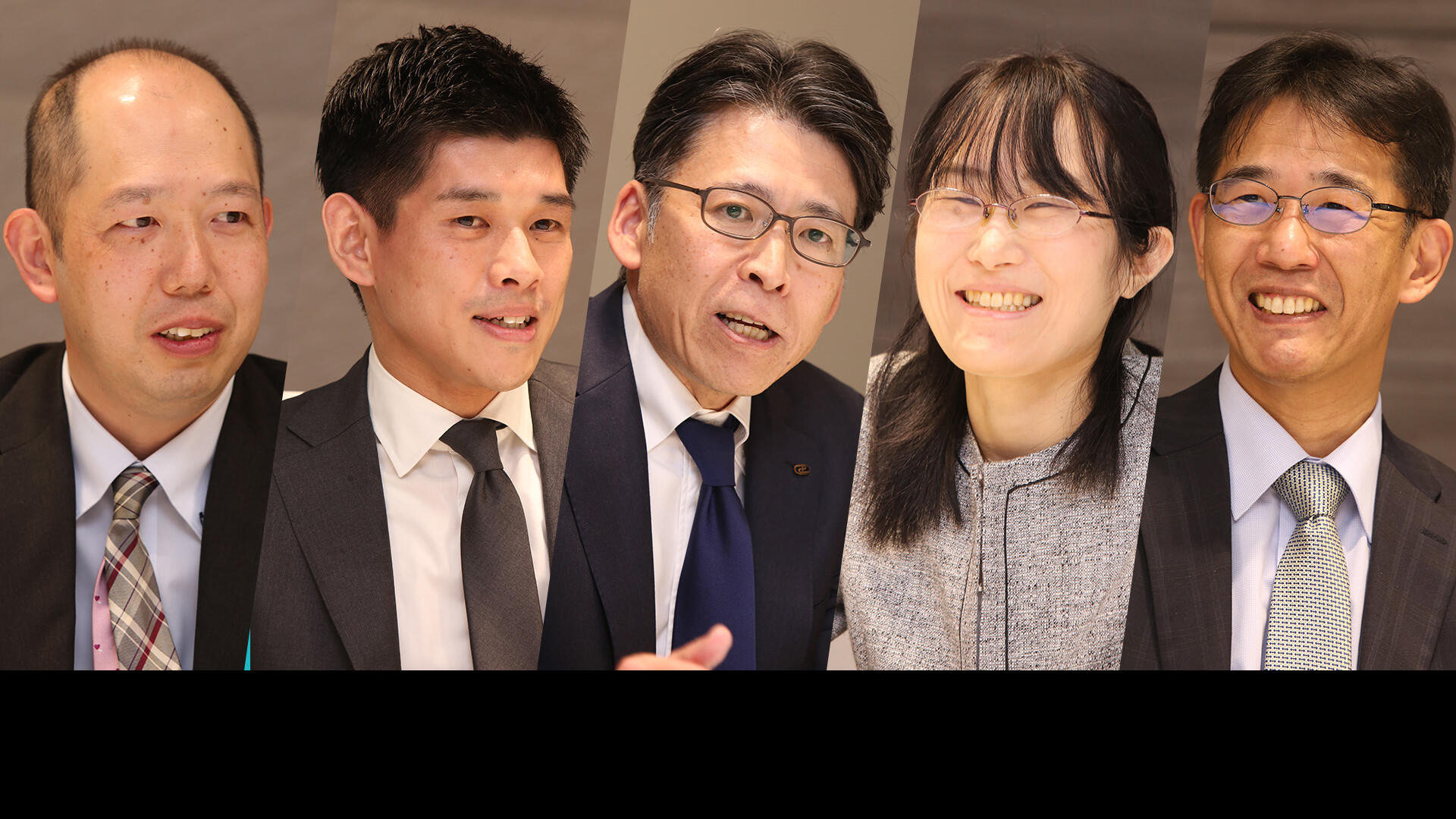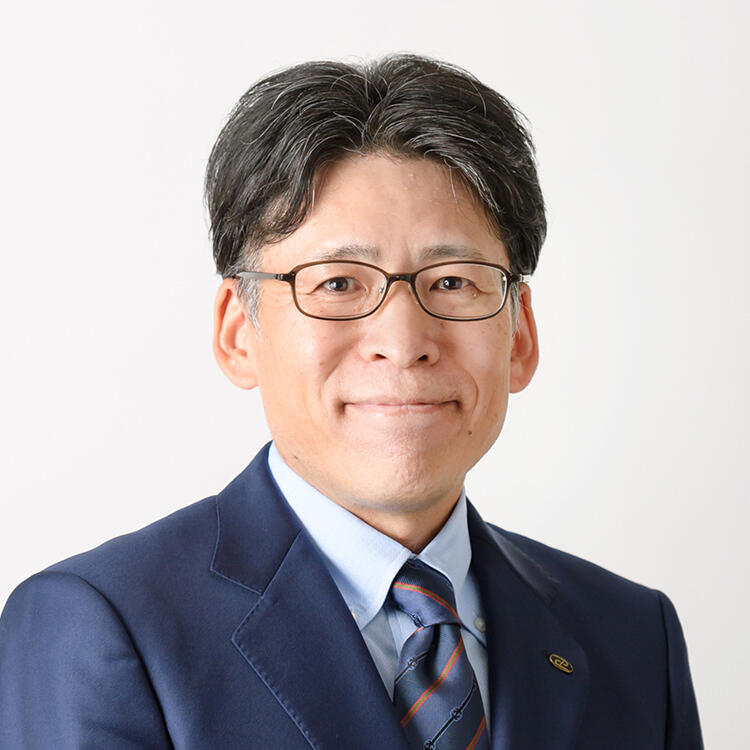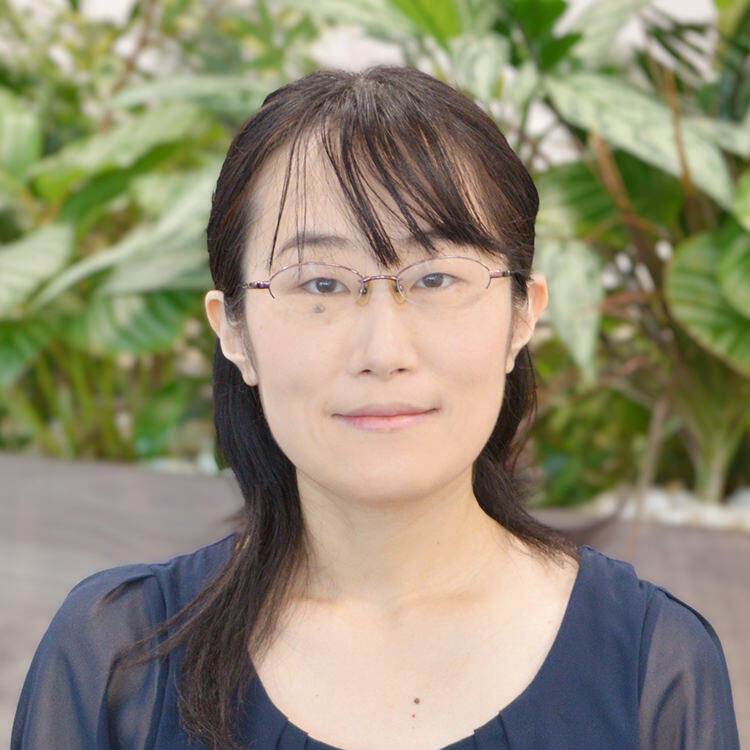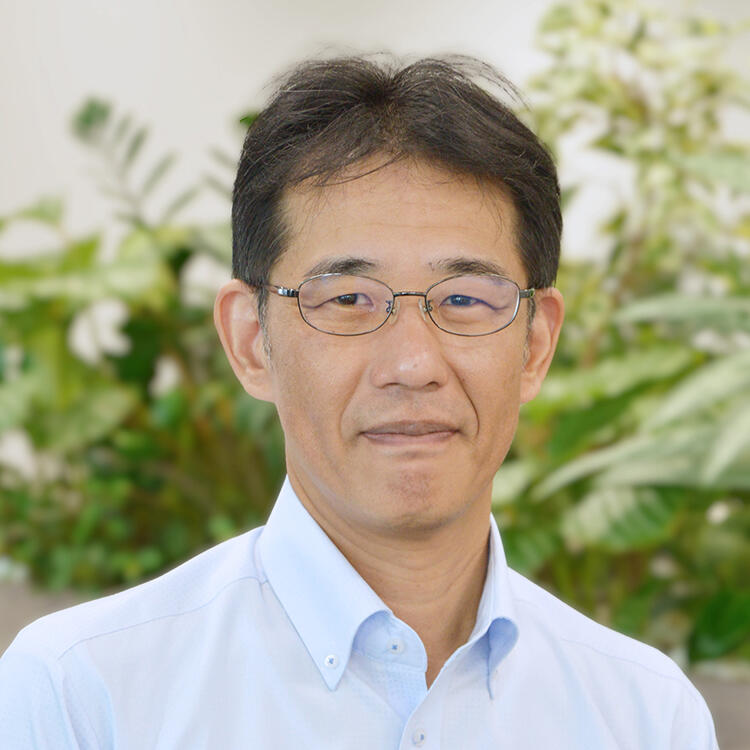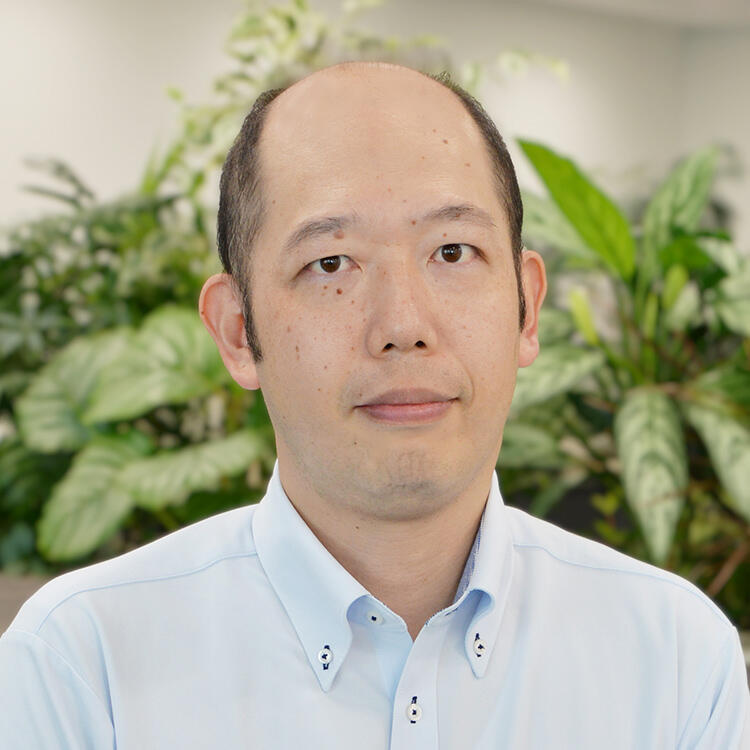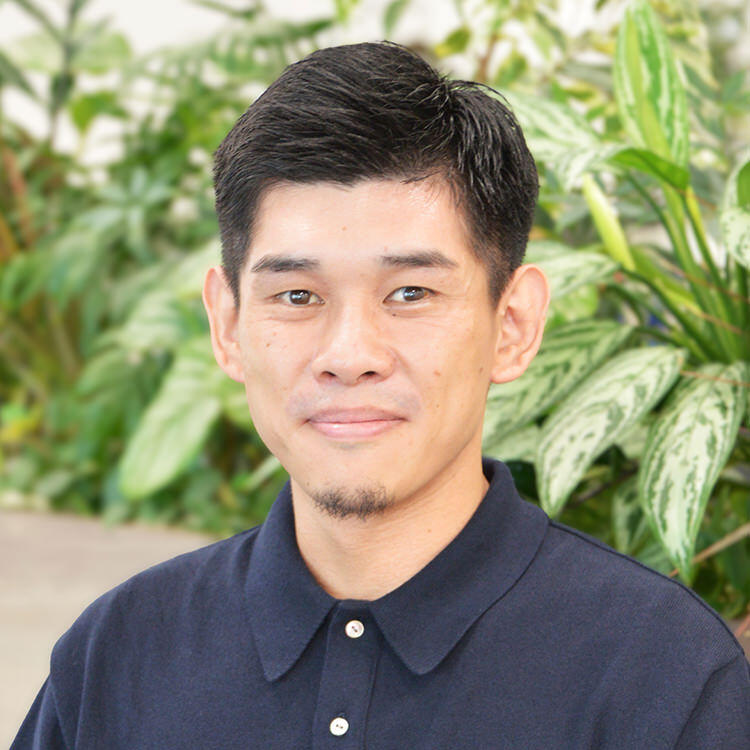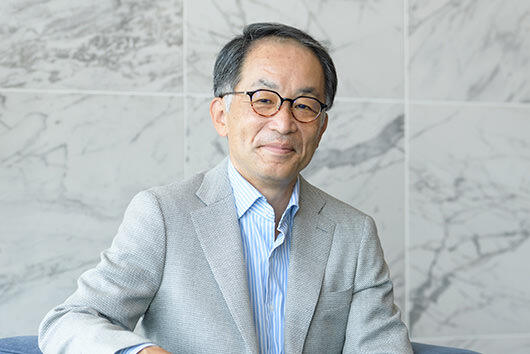PACIFIC CONSULTANTS has been a leading construction consulting company for over 70 years, providing services for various social capital such as roads, railways, and rivers. The company is seeking career hires from both the same and different industries, with the aim of realizing a society where people around the world can live in peace and security through infrastructure development, protecting the global environment, and passing on a rich earth to the next generation. In this project, we asked four people who joined PACIFIC CONSULTANTS as career hired to talk about the appeal and strengths of the company.
INDEX
- Achieving both social contribution and personal growth in a wide range of fields
- An environment filled with challenging attitudes and opportunities to take on new challenges
- Creating flexible organizations and systems
MINETANI: Thank you for today. I am also a mid-career employee. I changed jobs from a general contractor in 1998. Please tell us why you decided to change jobs to PACIFIC CONSULTANTS.
KODA: In previous job, I designed takeoff and landing routes for airplanes. As I continued working, I began to think that I wanted to do a job more broadly related to aviation, so I decided to join our company.
FURUKAWA: I joined the company in 2020 and am currently working on water-related tasks in the geotechnical field. In my previous job, I was also involved in similar tasks as a construction consultant. As I was approaching 50, I decided to change jobs to take on a new challenge. I chose to work at our company because a senior from my university's research lab was working there and I asked him for advice.
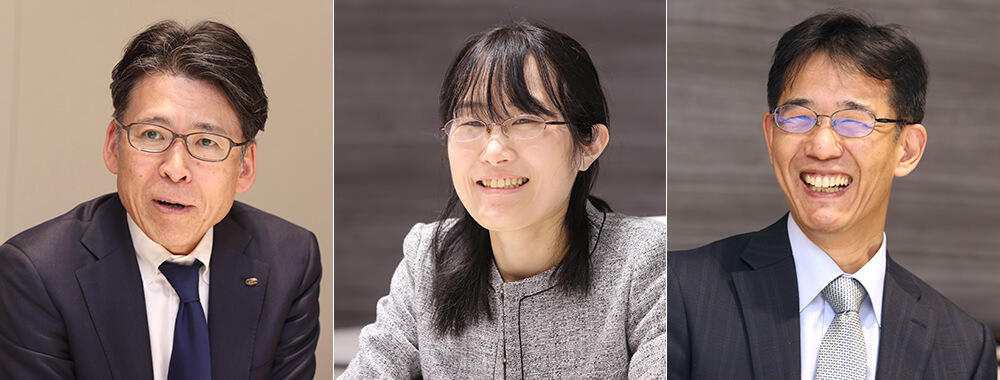
UTO: In my previous job at a mid-sized construction consultant, I was mainly in charge of road planning. I joined this company because I thought that I would be able to do a wide variety of work, even in the same transportation field, at a company that is a leader in the industry. Since changing jobs, I have been able to be involved in a variety of work just as I had imagined, and I am spending my days meaningfully.
OGAWA: In my previous job, I was a construction consultant, where I was involved in regional policy and urban planning, planning for the development of public facilities, and business management for land section arrangement business. I decided to change jobs to this company because I wanted to utilize my previous experience while also acquiring expertise in PPP.
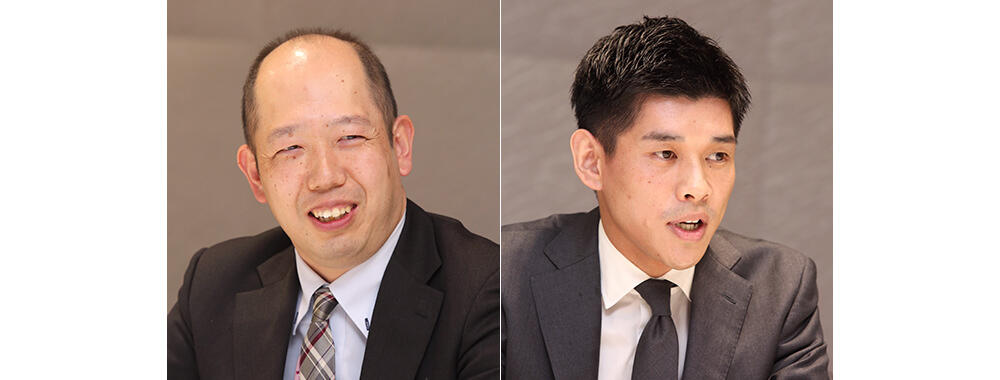
Achieving both social contribution and personal growth in a wide range of fields
Three out of the four people, excluding MINETANI, KODA, are newcomers to the company from within the construction consulting industry. How is it for you all since joining the company?
OGAWA: What's great about this is that it's an environment where you can both contribute to society and growth as a person. I have more opportunities than ever before to be involved in leading projects with local governments, and in the five years since I joined the company, I have been involved in many such projects. I feel that I am contributing to solving issues in administrative management and cities and regions, and I also feel that my expertise is deepening.
KODA: I had the impression that consulting work involves a lot of overtime, but in reality, it's an environment where you can maintain a good work-life balance. You can take paid holidays, and it's not uncommon to leave work on time.
UTO: I feel that is the company that gives you the opportunity to develop yourself. I also get the impression that the training given to managerial employees is thorough. I myself received training and learned a lot.
FURUKAWA: Even though we are in the same field of technology, I am involved in projects that I had never experienced in my previous job, so I discover something new every day and am enjoying my work. The difference I noticed when I joined the company was that I had expected it to be more strict company, but there is a moderate degree of freedom and the distance between junior employees and general managers of departments is close. I really liked the atmosphere of working together.
MINETANI: I remember when I first joined the company, I was inspired by seeing the young employees working well.
UTO: I was originally assigned to the Tohoku Branch Office, but after being transferred to Tokyo, I became the oldest member of the team, and I felt that I couldn't let myself be outdone by my juniors. I am able to work with just the right amount of tension, as I am involved in work that I had no experience.
An environment filled with challenging attitudes and opportunities to take on new challenges
MINETANI: There are lot of employees who have changed their jobs in our company, so we have cultivated a culture of accepting others. Earlier, you mentioned the keywords freedom and self-growth, but are there any other attractive aspects of our company?
FURUKAWA: The appeal is that there are plenty of opportunities to take on new challenges. At our company, if there is a job you want to do, you have the connections to make it happen. Another advantage is that you can learn by working in a team with a variety of people, both young and old, male and female. There are many managerial employees younger than me, so I hope to be able to support them.
MINETANI: We have many employees who are eager to take on new challenges. I believe that increasing the number of self-reliant employees will make us a stronger organization. What do you think are our company's strengths?
OGAWA: I think that one of our strengths is that we are expanding our infrastructure business not only into public works projects but also into private companies.
MINETANI: Having a large number of engineers and a wide range of work is a strength.
OGAWA: When I'm in trouble, if I search within the company, I'm sure there will be an engineer somewhere who is knowledgeable in that field, and it's reassuring to know that I can consult with him/her.
KODA: The larger the project, the more we have to consider things other than airport facilities, such as railways and roads to access the airport. I think it is thanks to our engineers from many fields that we are able to be involved in large-scale projects that span multiple fields.
UTO: I feel the same way. That's why the role of Project Manager like those in the Project Management Dept. is so important. People who manage projects need to have a certain degree of knowledge in a wide range of fields. I think it's people like that who support the company.
Creating flexible organizations and systems
MINETANI: I have also been involved in several large-scale projects. Project teams were formed with people who knew that "if it's a certain field, you can ask this person." I feel that the uniqueness of our company is in the flexible organizational structure that makes this possible. We are currently creating a system that allows all employees to demonstrate their capabilities while carrying out organizational reforms such as establishment of Project Management Dept.
OGAWA: In the few years since I joined the company, the company has undergone several organizational restructurings, which shows the company's commitment to trying to build a better organization in a timely and appropriate manner through trial and error.
MINETANI: We ask new graduates why they want to work for us in interviews, many of them answer "comprehensive strength and a free corporate culture." I feel that we must continue to value creating a flexible organization. Many of our employees, both men and women, work while raising children, but are you all able to work smoothly?
KODA: After joining the company, I took maternity leave and childcare leave. At the same time, I also passed the management exam. As you said, I think this is a company where balancing work and childcare is widespread, regardless of gender.
UTO: My family lives in the region, and I've been living alone in Tokyo for three years. As my children are still small, I want to be with them as much as possible, so I take advantage of telecommuting and spend one-third of my time in Tohoku, where my family is, and two-thirds in Tokyo. It's easy to work here because the environment is set up so that you can work anywhere. There are other employees in my department who are raising children, and the fact that diverse working styles are being introduced is the most helpful for the child-rearing generation.
OGAWA: After joining the Osaka Headquarters, I was transferred to Tokyo, but now I am in charge of work in both Osaka and Tokyo, and I commute between the two places. My family is in the Kansai region, so the flexibility of working according to family needs is also one of the attractions of our company.
FURUKAWA: There is a shared understanding that all you have to do, is carry out the tasks assigned to you properly, so once you've learned to organize your own work, you can choose your own working style to a certain extent, which is great because there is a high degree of freedom in the way you work.
MINETANI: Even without any special circumstances, everyone is working from home, so do you feel anything about having fewer opportunities to meet face-to-face?
UTO: I think there will be issues with passing technology, but as a company with a wide range of engineers, we need to pay close attention to that.
MINETANI: Regarding technology succession, we have been working on it since the previous fiscal year by establishing a Master System (a system in which highly skilled personnel are selected and they support and train their juniors one-on-one). I am one of the Masters. In addition, there are also organizational efforts such as increasing in-person study sessions and communication. Finally, please tell us about the challenges and ambitions you would like to take on at our company in the future.
OGAWA: I would like to meet our customers' needs by providing comprehensive support for the utilization of public real estate, from conception to commercialization, while also involving related areas such as carbon neutrality.
KODA: The plans for airport will not take shape immediately, so I would like to see the project I have worked on come to fruition.
FURUKAWA: If young engineers want the skills I have, I would like to give them to them generously. I would also like to create a new market in the private sector and global fields where geotechnical technology can be utilized, so that young engineers can become interested, and to invigorate the entire industry.
UTO: I would like to give back by doing work that will revitalize my hometown of Tohoku.
MINETANI: Thank you for today.



